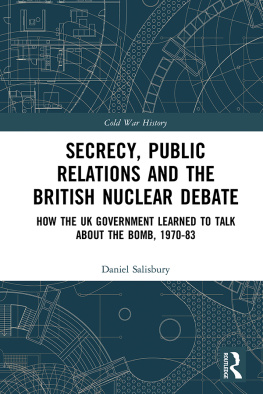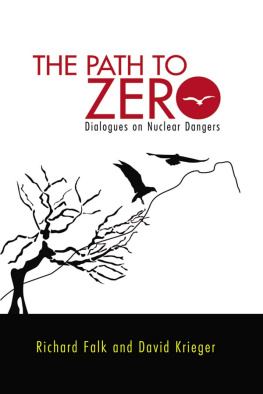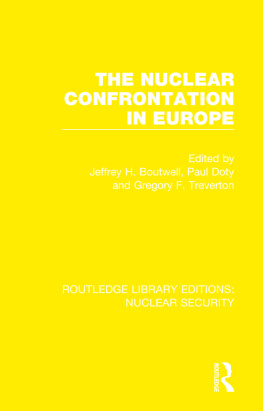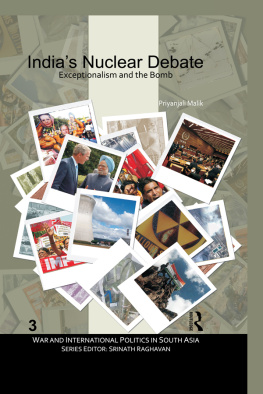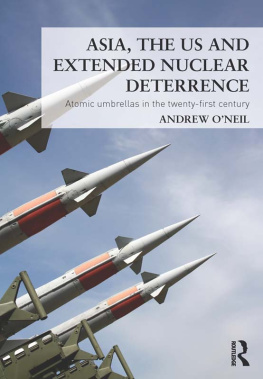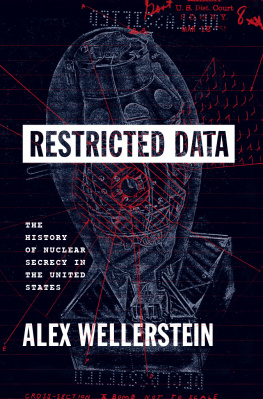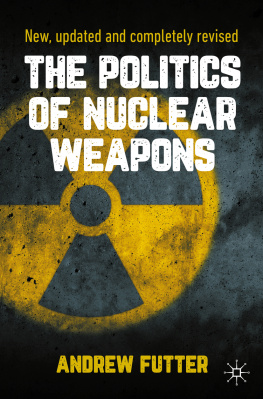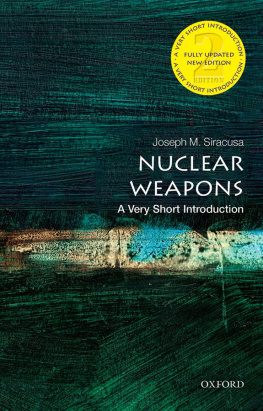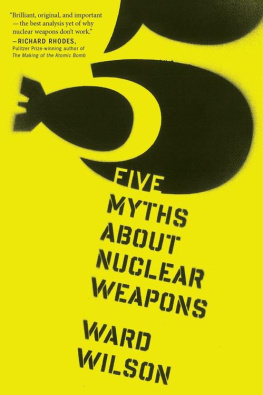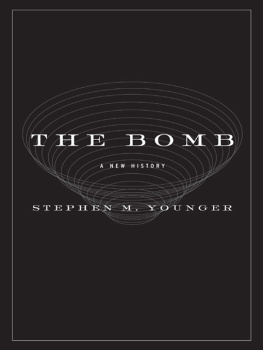Secrecy, Public Relations and the British Nuclear Debate
This book constitutes an original archival history of government secrecy, public relations and the debate surrounding nuclear weapons in Britain from 1970 to 1983.
The book contrasts the secrecy and near-silence of the Heath, Wilson and Callaghan governments on nuclear issues in the 1970s with the increasingly vocal case made for the possession of nuclear weapons by the first Thatcher government following a shift in approach in 1980. This shift occurred against a background of rising Cold War tensions and a growing public nuclear debate in the UK. The book seeks to contextualise and explain this transformation, considering the role of party politics, structures and personalities inside the government, and external influences: notably the role of investigative journalists and think tanks in cracking open official secrecy and demanding justification for Britains possession of nuclear weapons, and the peace movement in driving increasingly assertive public relations from 1980. The book draws on material from archives and interviews with key figures involved to provide an original and engaging account. It argues that this process of opening up saw significant disclosure of nuclear policy for the first time, and the most extensive public justification of the British nuclear capability to date, which has shaped public understanding of British nuclear weapons into the twenty-first century.
This book will be of much interest to students of British politics, Cold War studies, nuclear politics and security studies.
Daniel Salisbury is a Research Fellow at the Centre for Science and Security Studies (CSSS) within the Department of War Studies at Kings College London, UK.
Cold War History
In the new history of the Cold War that has been forming since 1989, many of the established truths about the international conflict that shaped the latter half of the twentieth century have come up for revision. The present series is an attempt to make available interpretations and materials that will help further the development of this new history, and it will concentrate in particular on publishing expositions of key historical issues and critical surveys of newly available sources.
Series Editors:
Odd Arne Westad, John F. Kennedy School of Government, USA
Michael Cox, London School of Economics & Political Science, UK
New Perspectives on the End of the Cold War
Unexpected Transformations?
Edited by Bernhard Blumenau, Jussi M. Hanhimki and Barbara Zanchetta
The Diplomacy of Dtente
Cooperative Security Policies from Helmut Schmidt to George Shultz
Stephan Kieninger
America and Romania in the Cold War
A Differentiated Dtente, 196980
Paschalis Pechlivanis
The Greek Junta and the International System
A Case Study of Southern European Dictatorships, 196774
Edited by Antonis Klapsis, Constantine Arvanitopoulos, Evanthis Hatzivassiliou and Effie G. H. Pedaliu
Secrecy, Public Relations and the British Nuclear Debate
How the UK Government Learned to Talk about the Bomb, 197083
Daniel Salisbury
For more information about this series, please visit: www.routledge.com/Cold-War-History/book-series/SE0220
First published 2020
by Routledge
2 Park Square, Milton Park, Abingdon, Oxon OX14 4RN
and by Routledge
52 Vanderbilt Avenue, New York, NY 10017
Routledge is an imprint of the Taylor & Francis Group, an informa business
2020 Daniel Salisbury
The right of Daniel Salisbury to be identified as author of this work has been asserted by him in accordance with sections 77 and 78 of the Copyright, Designs and Patents Act 1988.
All rights reserved. No part of this book may be reprinted or reproduced or utilised in any form or by any electronic, mechanical, or other means, now known or hereafter invented, including photocopying and recording, or in any information storage or retrieval system, without permission in writing from the publishers.
Trademark notice: Product or corporate names may be trademarks or registered trademarks, and are used only for identification and explanation without intent to infringe.
British Library Cataloguing-in-Publication Data
A catalogue record for this book is available from the British Library
Library of Congress Cataloging-in-Publication Data
Names: Salisbury, Daniel, 1988- author.
Title: Secrecy, public relations and the British nuclear debate : how the UK government learned to talk about the bomb, 197083 / Daniel Salisbury.
Description: Abingdon, Oxon ; New York, NY : Routledge, 2020. |
Series: Cold War history | Includes bibliographical references and index.
Identifiers: LCCN 2019048412 (print) | LCCN 2019048413 (ebook) | ISBN 9780367351175 (hardback) | ISBN 9780429331916 (ebook)
Subjects: LCSH: Nuclear weaponsGreat Britain. | Great BritainMilitary policy.
Classification: LCC UA647 .S175 2020 (print) | LCC UA647 (ebook) | DDC 355.02/170941dc23
LC record available at https://lccn.loc.gov/2019048412
LC ebook record available at https://lccn.loc.gov/2019048413
ISBN: 978-0-367-35117-5 (hbk)
ISBN: 978-0-429-33191-6 (ebk)
Professor Sir Lawrence Freedman
Daniel Salisburys account of how the governments culture of intense secrecy surrounding the UKs nuclear weapons policy was sustained through the 1970s and came to an end in the early 1980s casts a fascinating light on a process I watched closely from the other side, as someone who was trying to find out what the government was up to. Given the countrys record of keeping secrets from the Soviet Union, and the regular passage of reconnaissance satellites, it was hard to assume that the purpose of the secrecy was to deny information to the potential adversary. Moreover the theory of deterrence required that Moscow knew enough to take the UK capability seriously. Of course there were aspects of the capability that it were best kept secret anything to do with potential vulnerabilities of missile-carrying submarines for example. Access to highly classified information also created an internal bond among those in the know. But it was hard to avoid the suspicion that the main point of secrecy was to avoid debate.
The period of maximum secrecy coincided with Labour governments who had committed themselves, against the wishes of many of their activists and supporters, to sustaining the national nuclear force. In 1964 Harold Wilson inherited a new Polaris submarine programme which he had criticised in opposition but now wished to keep going. In the late 1970s James Callaghan was ready to support a successor to Polaris but he wanted to keep this quiet until he had no choice but to break his silence. In addition, as an interim measure, the government had supported what had turned out to be an extremely expensive programme known as Chevaline to put a new front-end on Polaris missiles to beat Soviet missile defences with very few people knowing about it. So life was just easier if there was no publicity. Debate would bring other issues. The rationale for why the UK needed its own capability when the United States was supposedly responsible for providing nuclear deterrence for the Atlantic Alliance was, to put it kindly, not easy to explain. Unlike the French, the British were not going to argue in public that they needed their own force because the Americans couldnt be trusted.
The Conservative government went along with this in the early 1970s. The Polaris fleet had just come into service and it was best to maintain the secrecy as a way of maintaining a consensus across the two front benches. By the time a Conservative government came along again in 1979 the situation had changed. Decisions on Polaris succession were imminent. In addition plans were underway to deploy American cruise missiles in the UK as part of an alliance-wide modernisation programme of Intermediate Nuclear Forces (INF). This provided a moribund campaign for nuclear disarmament with a new cause which they latched on to with alacrity. As Salisbury demonstrates, the government accepted that it now had to make the case, which it did with parliamentary statements and public documents. Eventually as the clamour against cruise missiles grew, including the Womans Peace Camp at the missile base at Greenham Common, it moved to persuasion with the flamboyant Michael Heseltine taking the lead as secretary of defence.

